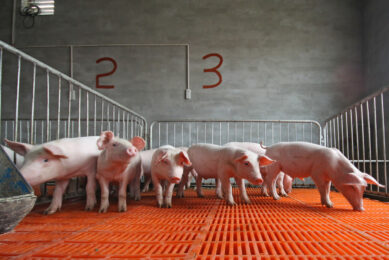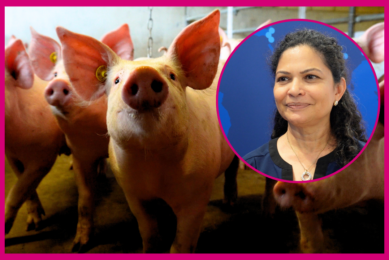Changes in antimicrobial sensitivity of fecal E. coli in pigs exposed to enrofloxacin by different dosing routes: evidence for the “Mutant Selection Window”
The fluoroquinolones (FQ) are synthetic, broad spectrum bactericidal antibiotics which use in Canada is restricted to companion animals and beef cattle. Since their introduction in veterinary medicine, FQ-resistant bacteria are emerging in domestic animals, but the relationship between drug use and drug resistance awaits elucidation. Recently, the “mutant selection window” (MSW) concept has been proposed to explain the enrichment of resistant bacteria during FQ exposure [1]. Because drug efflux transporters excrete FQ into the intestinal lumen, where drugresistant zoonotic pathogens may be selected, we hypothesized that the level of selection pressure will vary depending on the FQ dosing route.
The study objective was to compare the changes in fecal E. coli population size and antimicrobial sensitivity of pigs treated with enrofloxacin (EFX) orally, intramuscularly, or by way of local delivery implants.
Romain Beraud; Louis Huneault; Dave Bernier; Francis Beaudry; Ann Letellier; Jerome R. del Castillo
Université de Montréal, St-Hyacinthe, QC, Canada
For full presentation see attached pdf











